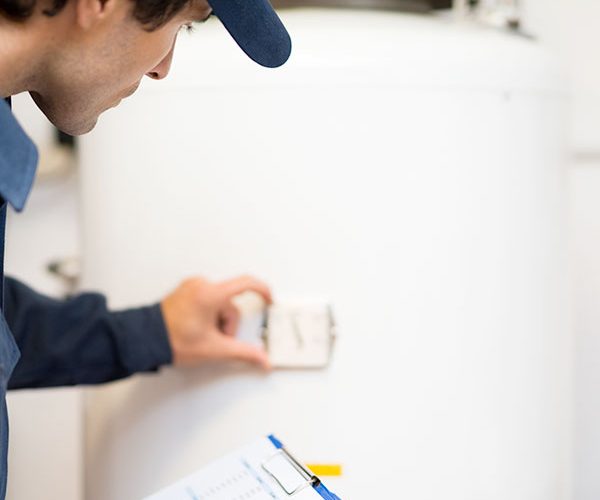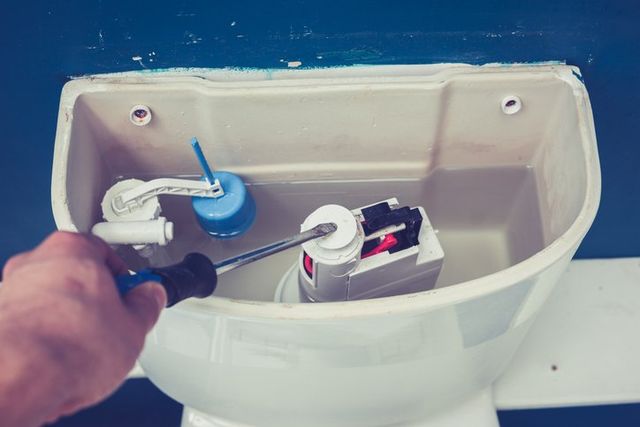Managing the Primary Water Heater Urgencies
Managing the Primary Water Heater Urgencies
Blog Article
The writer is making a few good points about Warning Signs You Need Water Heater Repairs overall in this article which follows.

A hot water heater is one of the most vital basic home appliances that can be located in a home. With water heaters, you do not need to go through the tension of home heating water by hand each time there is a requirement to take a bath, wash, or the meals. Nonetheless, there is always a possibility that your water heater would act up just like the majority of mechanical devices.
It is necessary to keep in mind any type of little malfunction and also tackle it swiftly before things leave hand. Many times, your hot water heater begins to malfunction when there is an accumulation of debris as a result of constant use. As a precaution, routine flushing of your water heater is recommended to avoid sediment build-up and stop functional failing.
Common water heater emergency situations as well as just how to deal with them
Leaking water heater storage tank.
In this situation, you must turn off your water heating unit, enable it to cool down, as well as very carefully look for the resource of the problem. At times, all you need to do is to tighten a few screws or pipe connections in situations of small leaks. If this does not function as well as the leak continues, you might need to use the services of a service technician for a suitable substitute.
Rising and fall water temperature level.
Your hot water heater could begin creating water of different temperatures typically ice scalding or cool hot. In this scenario, the first thing you do is to make certain that the temperature is readied to the desired level. If after doing this, the water temperature level maintains transforming during showers or other tasks, you might have a defective thermostat. There might be a need to change either the home heating or the thermostat device of your water heater.
Too little warm water
It may be that the water heater can't sustain the hot water demand for your apartment or condo. You can update your water heater to one with a larger ability.
Stained or odiferous water
You need to recognize if the issue is from the water or the storage tank resource when this takes place. If there is no amusing smell when you run cold water, after that you are certain that it is your hot water heater that is damaged. The odiferous water can be triggered by corrosion or the buildup of microorganisms or debris in the water heater storage tank. Once you observe this, you can try flushing out your container or replacing the anode if the issue persists. The feature of the anode is to clean bacteria from your container. Since the anode rod replacement needs an extensive understanding of your water heating system, you will need the help of a specialist.
Conclusion
Some house owners ignore little caution and minor faults in their hot water heater device. This only brings about further damage and a possible full malfunction of your device. You must take care of your hot water heater mistakes as quickly as they come near avoid more expenses and unneeded emergency problems.
With water heating systems, you don't require to go through the anxiety of heating water manually every time there is a demand to take a bath, do the laundry, or the meals. Your water heater might start generating water of different temperature levels typically ice scalding or cold warm. It may be that the water heater can't sustain the hot water need for your apartment or condo. If there is no amusing smell when you run cool water, after that you are certain that it is your water heating system that is faulty. The stinky water can be created by corrosion or the buildup of microorganisms or sediments in the water heating system container.
Water Heater Burst: Why This Happens And What To Do Next
Water Heater Explosion Warning Signs
Since storage water heaters are made of metal and store large volumes of heated water, they carry an increased risk of leaking or even exploding as they begin to rust at the fittings and seams over time. If the thermostat controlling the water temperature within the tank is faulty, or if mineral buildup inside the water heater prevents the thermostat from sensing the water’s temperature correctly, the water could become overheated. This will expand its volume within the tank, causing it to press at the tank’s fittings and seams. If these fittings and seams are rusted or corroded, the pressure could result in a leak or even an explosion.
Here are some risk factors and warning signs of an increased risk of water heater leak or explosion:
Your water heater is more than 10 years old. Your water heater makes clanking, banging or rumbling noises as it heats up, indicating that sediment has built up and hardened inside the tank. There is visible rust on the outside of the water heater, especially located at the pipe fittings or the seams that run down the tank. There is rusty water coming from your water heater, indicating that there may be rust building up inside. Your water heater is leaking, which could indicate either a crack somewhere in the tank or a malfunctioning temperature-and-pressure (T&P) relief valve. What To Do When Water Heater Leaks
If you find water dripping or seeping out of your water heater, or pooling around it, it means your water heater is leaking. If you find a leak, it may be best to call a plumbing professional to diagnose the problem and determine how best to handle it. If you choose to tackle it on your own, there are a few things you can do.
TURN OFF THE POWER
Next, shut off the power to the hot water tank at your home’s electrical breaker box. If you don’t shut off the power, the heating elements within the tank could continue to stay hot, which could pose a fire risk.
If you have a gas-powered water heater, you’ll also need to shut off the gas line leading into the tank.
FIND THE LEAK
Now it’s time to determine where the leak is coming from. Likely locations are the T&P valve, the drain valve or one of the pipes or fittings that feed into the top of the tank. If you see any rust or corrosion on the outside of your water heater’s tank, pipes or fittings, these could also be the source of the leak.
REPAIR THE LEAK
Once you determine the source of your water heater leak, you’ll have a better idea of what steps you need to take to fix the problem. It may be a simple fix—such as using a wrench to tighten fittings or replacing the T&P valve—but it may be something more complicated. You may even need to drain the tank, remove the water heater and install a new one.
https://www.abchomeandcommercial.com/blog/water-heater-burst/

Do you appreciate reading about Common Hot Water Heater Problems? Give feedback down the page. We'd be pleased to listen to your responses about this page. We hope that you visit us again later on. If you liked our post plz make sure you remember to share it. Thank you for going through it.
Get the right fix, call! Report this page